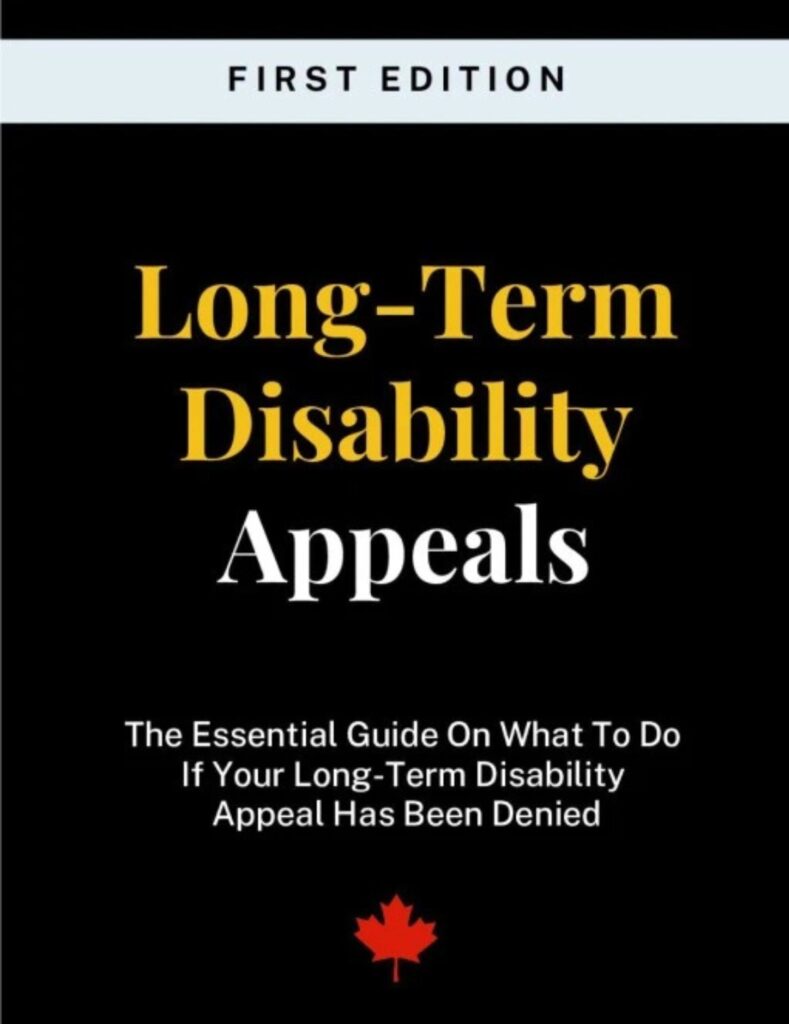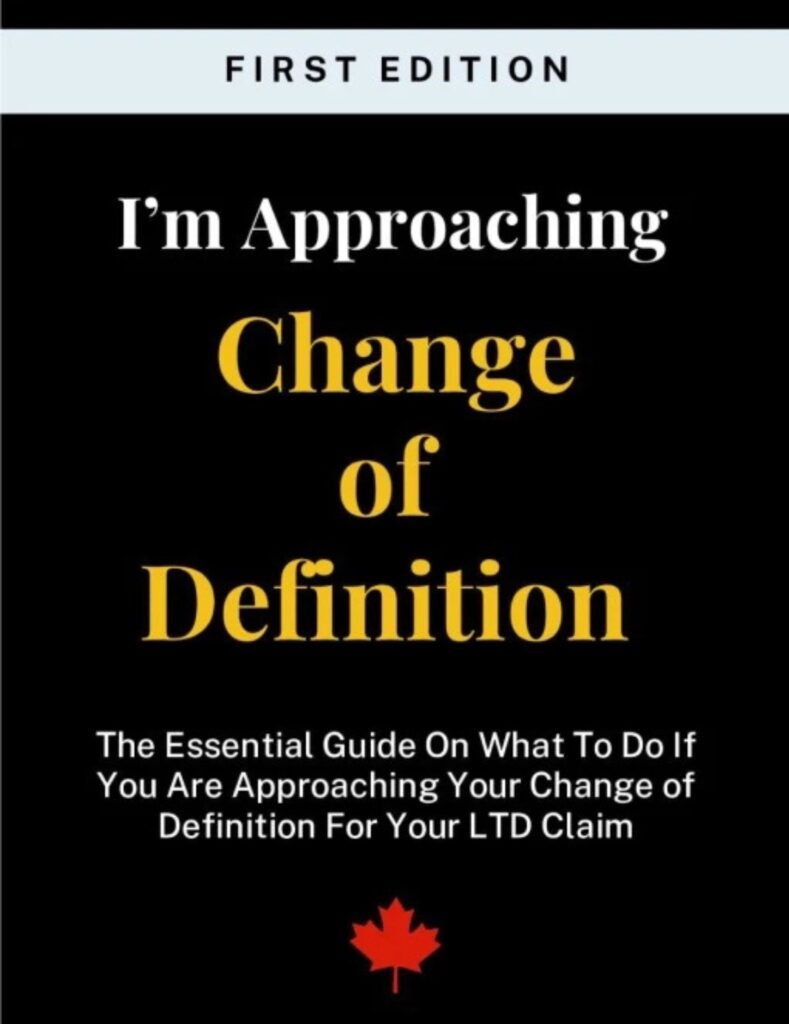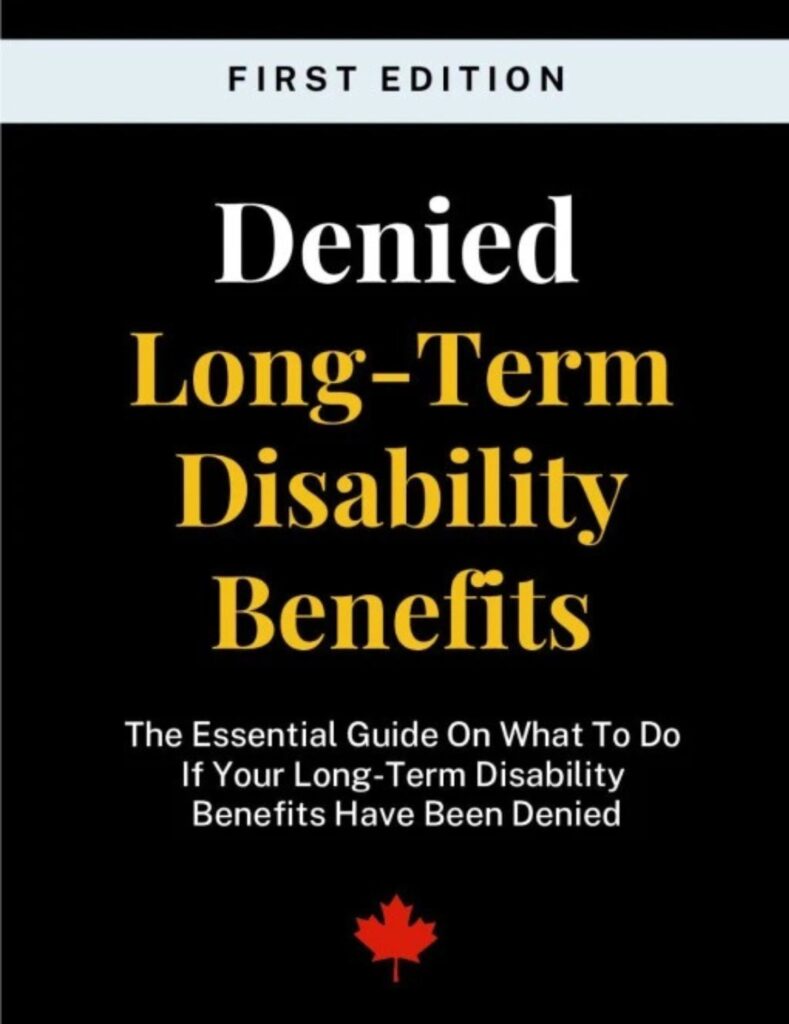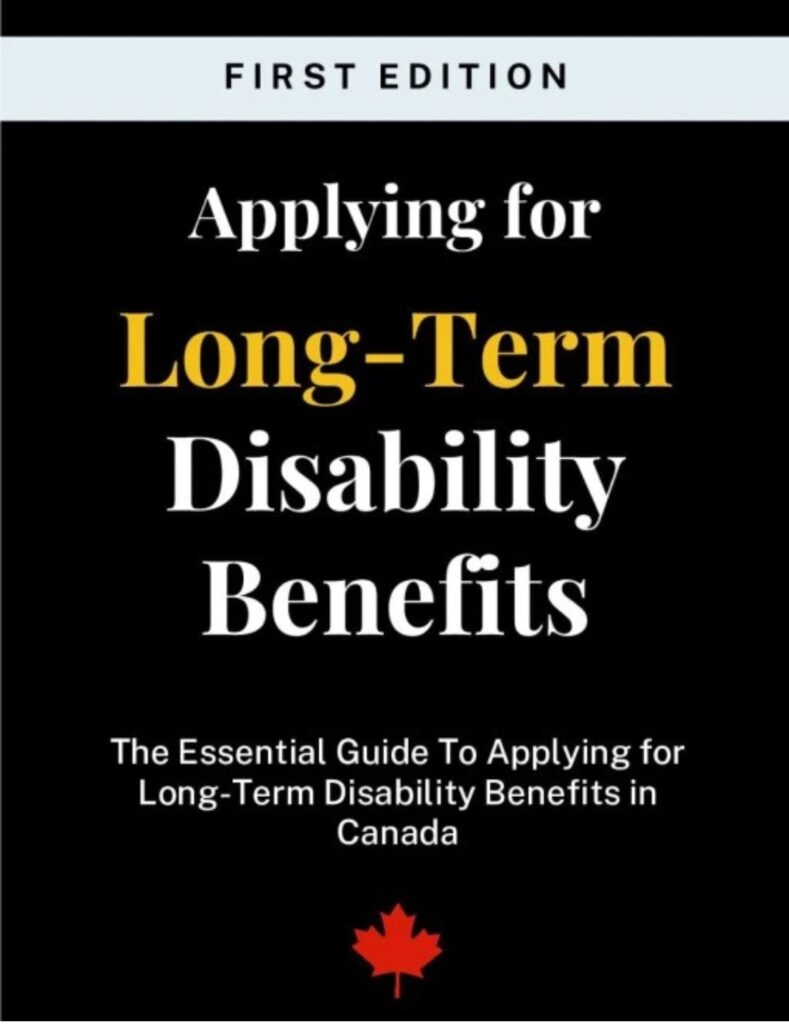Toronto Long Term Disability Lawyer
Find out if you have a case today.
Contact our Toronto long-term disability lawyers for a free consultation if you have legal questions regarding your long-term disability claim.
Table of Contents
Long-term disability (LTD) benefits provide financial support when an illness or injury prevents someone from working for an extended period. Many workers in Toronto rely on these benefits when their health conditions stop them from performing their job duties. Insurance companies, however, often deny or cut off benefits even when claimants have legitimate medical conditions. Working with a long-term disability lawyer in Toronto helps individuals protect their rights under Ontario law and increases the likelihood of a fair outcome.
Preszler Injury Lawyers has represented people across Ontario who struggle to secure the benefits they paid for. Our firm understands the tactics insurers use to avoid paying valid claims, and we fight to hold them accountable. If your LTD benefits have been denied, delayed, or terminated, we encourage you to reach out to our office for a free consultation.
What Are Long-Term Disability Benefits in Canada?
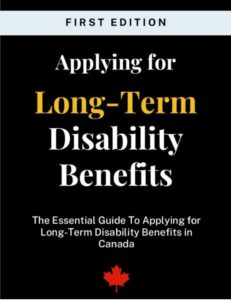 Long-term disability benefits replace part of your income when a health condition keeps you from working for months or years. These benefits are designed to provide financial stability while you focus on recovery or adjusting to new limitations. In Toronto and across Ontario, workers may access LTD benefits through private insurance plans, employer-sponsored coverage, or government programs.
Long-term disability benefits replace part of your income when a health condition keeps you from working for months or years. These benefits are designed to provide financial stability while you focus on recovery or adjusting to new limitations. In Toronto and across Ontario, workers may access LTD benefits through private insurance plans, employer-sponsored coverage, or government programs.
Understanding LTD Insurance Coverage
Most workers receive LTD benefits through employer group insurance plans. These policies are included in benefit packages and cover eligible employees when a disability prevents them from continuing work. Others purchase individual LTD policies directly from an insurer. Both types of coverage fall under Canadian insurance law, which requires insurers to act in good faith when handling claims.
Group policies often include standard terms, but individual plans can vary widely depending on what coverage was purchased. Regardless of the type, the insurer typically pays a monthly amount equal to 60 to 85 percent of your pre-disability earnings. Policies usually outline specific rules about when benefits begin, how long they last, and what conditions qualify.
Types of Disability Benefits Available
In Canada, several forms of disability benefits exist. The Canada Pension Plan (CPP) offers disability payments to individuals who contributed to the plan and cannot work due to severe, prolonged conditions. Private LTD insurance provides income replacement based on policy terms. Employer-provided LTD is common in workplaces across Ontario and often supplements other government benefits. Each program operates independently, but claimants sometimes receive more than one type of benefit at the same time.
Eligibility Requirements for LTD Claims
To qualify for LTD benefits, claimants must meet the policy’s definition of total disability. Early in the claim, most policies use the “own occupation” standard, which means you must show you can’t perform the essential duties of your regular job. After a set period, usually two years, many policies switch to the “any occupation” standard, requiring proof that you can’t perform any job for which you are reasonably suited.
Claims also require completion of an elimination period, often lasting several months, during which no benefits are paid. Medical evidence plays a central role. Claimants must provide detailed reports from treating doctors, diagnostic tests, and other documentation that proves the severity of the condition. Without strong medical support, insurers often deny claims.
LET US PUT OUR EXPERTISE TO WORK FOR YOU
Tell Us What Happened
Since 1959, we’ve helped thousands of Canadians get the compensation they deserve with their long-term disability claims. One of Canada’s oldest personal injury law firms, personal injury law is exclusively what we do. Book a free consultation today with our top-rated personal injury lawyers.
Our team is available 24/7 to speak with you.

How Does the LTD Claims Process Work in Toronto?
Applying for long-term disability benefits in Toronto involves more than just filling out forms. The process requires careful preparation, strong medical documentation, and constant attention to deadlines. Insurance companies hold significant control over how claims are reviewed, which means they look for ways to reduce or deny payments.
Understanding each stage of the claims process helps you prepare for what lies ahead and avoid common mistakes that could give the insurer an excuse to reject your application.
Filing Your Initial Disability Claim
The first step in the LTD claims process is submitting your application to the insurance company. Most insurers require three separate forms:
- Claimant’s Statement: This form provides your personal details, medical condition, job title, and how the disability affects your ability to work.
- Employer’s Statement: For group policies, your employer must confirm your job duties, salary, and last day worked.
- Attending Physician’s Statement: Your treating doctor fills out this form to confirm your diagnosis, prognosis, and restrictions.
Submitting these documents on time is essential. Insurance companies often set strict deadlines, sometimes requiring claims to be filed within 30 to 90 days of leaving work.
Missing the deadline gives the insurer grounds to dismiss your claim without even considering the medical details. Claimants in communities like Scarborough, who may need extra time to gather medical records, often feel rushed during this stage. That pressure is part of the insurer’s process.
Medical Evidence and Documentation Requirements
Medical evidence serves as the foundation of any LTD claim. Without strong support from healthcare providers, insurers usually argue that the claimant could return to work. A successful claim often requires:
- Detailed physician reports that describe not only the diagnosis but also how the condition limits daily functioning.
- Diagnostic testing results, such as MRIs, X-rays, or bloodwork, that objectively confirm the medical condition.
- Treatment records showing that you followed recommended care, whether through medication, physical therapy, or counselling.
Insurers may also request ongoing updates from your doctors, sometimes every few months, to confirm your condition has not improved enough to return to work. Even small gaps in treatment can raise red flags for insurers, who may argue that a lack of regular care shows the condition isn’t serious enough for benefits.
Insurance Company Review and Investigation
After receiving your claim, the insurance company begins its review. This stage includes examining your medical records, employment information, and statements. Insurers also often conduct investigations to test whether your reported limitations match your actual activities.
Investigative tactics include:
- Surveillance: Private investigators may watch you outside your home or follow you in public, hoping to capture video of you doing something they claim is inconsistent with your disability.
- Social media monitoring: Insurers regularly check Facebook, Instagram, or TikTok accounts to look for posts that contradict medical reports. A single photo of you attending a wedding in North York, for example, may be taken out of context and used against you.
- Independent medical examinations (IMEs): The insurer may require you to attend an evaluation with a doctor chosen by them. These doctors often minimize symptoms and suggest the claimant is capable of working.
This stage often determines whether benefits are approved, delayed, or denied. Insurance companies have every financial incentive to interpret the evidence in their own favour.
Appeals Process for Denied Claims
If your LTD claim is denied, insurers usually offer an internal appeal process. During this stage, you may submit additional medical records or written explanations addressing the denial reasons. While internal appeals sound fair, the reality is that the same company that denied your claim also reviews the appeal. Reversals are rare. Which is why working with an experienced attorney during your Long-Term Disability Claim appeal can make a critical difference
For this reason, many claimants choose to seek legal help instead of relying solely on the insurer’s appeal process. A lawyer can collect new medical evidence, commission expert opinions, and file a lawsuit in Ontario courts if necessary. Litigation holds the insurer accountable under contract law, forcing them to defend their decision in front of a judge.
Timelines for the LTD Process
The LTD process doesn’t move quickly. Applications may take several weeks or months before insurers reach a decision. Internal appeals can add months more. Litigation may last over a year, depending on court schedules and the complexity of the case. During this time, many claimants have no income other than short-term savings or government assistance. The delay often places significant pressure on individuals and families.
The Role of Legal Representation
Although claimants have the right to file LTD claims without a lawyer, insurance companies often exploit this by requesting excessive paperwork, scheduling repeated IMEs, or delaying responses. Having legal representation levels the playing field. Our Toronto long-term disability lawyers ensure deadlines are met, medical evidence is thorough, and insurers are held accountable for unfair practices.
In Ontario, lawsuits against insurers often result in settlements before trial. Settlement negotiations may provide a lump-sum payment that accounts for past due benefits and future entitlement. While every case is different, legal involvement usually improves the chances of obtaining a fair resolution.
Common Reasons LTD Claims Are Denied
Insurance companies deny long-term disability claims more often than most people expect. Even when claimants submit complete applications with medical records, insurers often find reasons to refuse payment. A denial leaves individuals without income support and forces them to consider appeals or legal action. Understanding the common reasons for denials gives claimants insight into how insurers operate and helps them prepare stronger claims from the beginning.
Insufficient Medical Evidence
Lack of medical proof is one of the most frequent grounds for denial. Insurance companies argue that the medical records don’t show the condition is severe enough to prevent work. For example, a claimant suffering from chronic migraines may submit reports that list the diagnosis but fail to include detailed notes about frequency, intensity, and how the headaches interfere with concentration or daily activities. Insurers interpret that as insufficient proof of disability.
Doctors are often focused on treating the patient rather than documenting every limitation in detail. However, insurers rely heavily on the wording of medical reports. If a physician simply writes “patient complains of pain” without describing functional restrictions, the insurer may conclude the claimant can return to work. Strong LTD claims require physicians to go beyond diagnosis and explain exactly how the condition prevents employment.
Pre-Existing Condition Exclusions
Most LTD policies contain pre-existing condition clauses. These provisions allow insurers to deny claims if the disability relates to a medical condition that existed before the coverage began. For example, if a worker in Mississauga develops severe back pain and applies for LTD benefits, the insurer may look for any mention of back problems in earlier medical records. Even a minor complaint years earlier could be used as grounds for exclusion.
Insurers often stretch the meaning of “pre-existing.” A claimant who experienced occasional anxiety before buying a policy may find the insurer linking that history to a later diagnosis of major depressive disorder. While these conditions may differ significantly, insurers use them to argue that the disability falls outside coverage. Fighting these denials usually requires detailed medical opinions distinguishing the earlier condition from the current disabling illness.
Surveillance and Social Media Monitoring
Insurance companies invest heavily in surveillance. They may hire private investigators to watch claimants, hoping to capture video or photos of them performing tasks that appear inconsistent with reported limitations. Something as simple as carrying groceries in East York could be presented as proof that a claimant is capable of working full-time.
These investigations often misrepresent reality. A person with chronic pain may push themselves to lift a single grocery bag but spend the rest of the day recovering in bed. The short clip taken by the investigator doesn’t show the full picture. Despite this, insurers frequently rely on such footage to cast doubt on disability claims.
Social media monitoring adds another layer of scrutiny. Photos of claimants attending a wedding, smiling with friends, or travelling for a family event may be taken out of context. Insurers argue these images prove the claimant is not truly disabled, ignoring the fact that people sometimes present themselves positively online even while suffering.
Conflicting Medical Opinions
Another reason insurers deny claims is when medical opinions conflict. Insurers often arrange independent medical examinations (IMEs) with doctors they select. These doctors may downplay symptoms or suggest the claimant is exaggerating limitations. When the insurer compares the IME report to the treating physician’s opinion, they often choose to side with their own doctor.
This creates an uneven playing field. Treating physicians usually know the claimant’s history, symptoms, and treatment efforts, while IME doctors may see the claimant for a single hour. Yet insurers give significant weight to IME reports, using them as justification for denial or termination of benefits.
Alleged Failure to Follow Treatment
 Many policies require claimants to follow reasonable treatment plans. Insurers sometimes deny claims by arguing that the claimant did not comply with medical advice. For example, if a person with severe depression misses a few therapy sessions due to lack of energy or transportation issues, the insurer may claim the individual failed to cooperate with treatment.
Many policies require claimants to follow reasonable treatment plans. Insurers sometimes deny claims by arguing that the claimant did not comply with medical advice. For example, if a person with severe depression misses a few therapy sessions due to lack of energy or transportation issues, the insurer may claim the individual failed to cooperate with treatment.
This approach places unfair pressure on claimants. Medical conditions themselves often make it difficult to attend every appointment or follow every recommendation. Insurers use these lapses as opportunities to deny benefits rather than recognizing the genuine barriers claimants face.
Policy Limitations and Exclusions
Beyond pre-existing conditions, LTD policies contain other exclusions that insurers rely on to deny claims. Common examples include:
- Disabilities caused by substance abuse without active participation in treatment.
- Conditions related to self-inflicted injuries.
- Mental health claims limited to a specific period, such as 24 months.
Insurers use these provisions to argue that a claimant’s disability doesn’t meet the requirements for ongoing benefits. These limitations often surprise claimants who never closely reviewed the fine print of their policies before applying.
Administrative or Technical Reasons
Finally, some denials result from administrative issues rather than medical evidence. Insurers may claim paperwork was incomplete, deadlines were missed, or forms weren’t submitted correctly. For instance, if an employer delays in providing its portion of the paperwork, the insurer may hold that against the claimant.
While these denials may sound procedural, they have the same effect as medical-based rejections: the claimant is left without income support. Correcting these issues usually requires persistence and, in many cases, legal assistance.
What Should You Do If Your LTD Claim Is Denied?
A denied LTD claim doesn’t mean the end of the road. Workers in Toronto still have options to challenge insurance company decisions and pursue the benefits they’ve been unfairly denied.
Understanding Your Denial Letter
When insurers issue a denial, they must provide a written explanation. These letters often cite lack of medical evidence, pre-existing condition exclusions, or failure to meet policy definitions. Reading the letter carefully helps identify weaknesses in the insurer’s position.
Gathering Additional Medical Evidence
Claimants can strengthen their cases by gathering further medical support. This may include updated diagnostic testing, specialist assessments, or detailed functional capacity evaluations. Working closely with healthcare providers ensures that the documentation directly addresses the insurer’s reasons for denial.
Legal Options Under Ontario Law
If appeals don’t succeed, claimants have the right to pursue litigation. Lawsuits hold insurers accountable for failing to honour contractual obligations. Ontario law sets specific limitation periods, so acting quickly matters. Court proceedings may result in reinstated benefits, lump-sum settlements, or both. Insurers often agree to settle cases rather than risk unfavourable judgments.
How Long Do You Have to Sue for LTD Benefits?
Ontario law generally gives claimants two years to sue from the date the insurer first denies or terminates benefits. This rule comes from the Limitations Act, 2002. The countdown starts when the claimant knew or ought to have known about the denial.
Exceptions and Extensions
Some circumstances extend or pause the limitation period. For example, if an insurer continues reviewing an internal appeal, the limitation clock may not start until the final decision. Courts may also allow exceptions in rare cases where claimants lacked the ability to pursue legal action earlier.
Importance of Acting Quickly
Delays reduce your legal options. Evidence becomes harder to collect, and insurers argue that late claims should be dismissed. Contacting a long-term disability lawyer in Toronto as soon as benefits are denied increases the chances of success and ensures deadlines are not missed.
How Our Award-Winning Lawyers Can Help Your LTD Case In Toronto
Insurance companies often have the upper hand during long-term disability disputes because they control the claim process and have vast resources on their side. At Preszler Injury Lawyers, our team works directly with clients to build strong cases, challenge unfair denials, and pursue the benefits that policies are supposed to provide. From the very first meeting, we focus on your situation, your needs, and the steps that give you the best chance at a positive outcome.
Comprehensive Case Evaluation
Every disability claim is unique. Our lawyers take the time to review your policy language, your medical documentation, and the insurer’s stated reasons for denial or termination. By carefully examining the fine print and identifying weaknesses in the insurer’s arguments, we create a tailored strategy designed to protect your rights.
Medical Expert Network
Many disability disputes come down to medical opinions. Insurers often rely on doctors they hire to downplay the severity of conditions. To counter this, we work with independent specialists who provide objective evaluations. Their insight strengthens your case and ensures that the true impact of your disability is clearly presented.
Negotiation and Settlement
Not all cases need to go to trial. Our team negotiates directly with insurers to reach fair settlements that reflect the long-term financial impact of a disability. We prepare every case as if it will proceed to court, but many insurers agree to settle once they recognize the strength of our position. This approach often helps clients resolve disputes more quickly and with less stress.
Litigation Experience
When insurers refuse to resolve claims fairly, Preszler Injury Lawyers is ready to pursue litigation. Our firm has experience in Ontario courts holding insurers accountable for wrongful denials. Court proceedings allow us to present evidence before a judge, giving clients a powerful way to challenge unfair treatment and recover the benefits they’ve been denied.
Contingency Fee Arrangements
We believe access to justice shouldn’t depend on a person’s ability to pay legal fees upfront. Our firm works on a contingency fee basis, meaning you don’t pay legal fees until we successfully resolve your case. This arrangement gives you the ability to move forward with experienced representation without financial risk.
What Types of Disabilities Qualify for LTD Benefits?
Long-term disability benefits cover a wide range of health conditions, including:
Physical Disabilities and Injuries
Conditions such as spinal cord injuries, musculoskeletal disorders, and Filing a Long-Term Disability Claim for Chronic Pain often qualify for LTD coverage. Workers in Etobicoke, for example, may rely on LTD after a workplace accident that prevents them from returning to heavy labour.
Mental Health Conditions
Depression, anxiety, post-traumatic stress disorder, and other psychological conditions also qualify. Insurers often challenge these claims more aggressively, but with proper medical support, they remain valid grounds for LTD benefits.
Chronic Illnesses
Fibromyalgia, chronic fatigue syndrome, and autoimmune disorders frequently lead to long-term disability. These illnesses may not always produce clear test results, but they still limit the ability to maintain regular employment.
Understanding Your LTD Policy Terms
Every long-term disability policy contains detailed language that shapes how benefits are granted, how long they last, and when they may end. These terms often decide whether a claim is approved or denied.
“Own Occupation” vs “Any Occupation” Definitions
During the first phase of an LTD claim, the “own occupation” test applies. You must show that your condition prevents you from performing your specific job duties. After two years, many policies switch to “any occupation,” requiring proof you can’t work in any reasonable job based on your background and training.
Benefit Periods and Payment Amounts
Policies specify maximum benefit durations, sometimes until age 65. Payment amounts usually equal a percentage of pre-disability earnings, subject to caps. Policies also contain waiting periods before benefits begin.
Policy Exclusions and Limitations
Common exclusions include conditions related to substance abuse, self-inflicted injuries, or pre-existing illnesses. Some policies also limit benefits for mental health conditions to a set time period, such as 24 months. Understanding these terms helps claimants know what to expect and how to prepare stronger cases.
The Role of CPP Disability Benefits
Many Canadians who apply for long-term disability benefits also turn to the Canada Pension Plan Disability program for added support. These two systems often work together, but they follow different rules and timelines. Understanding how CPP Disability interacts with private LTD insurance helps claimants plan for a steady income and avoid surprises when benefits overlap.
Coordinating CPP-D with Private LTD
CPP Disability benefits interact with private LTD coverage. Insurers often require claimants to apply for CPP-D, and any payments received may reduce the LTD amount paid by the insurer.
Application Process Differences
CPP Disability has its own eligibility requirements. Applicants must show they suffer from a severe and prolonged disability and have made sufficient contributions to the Canada Pension Plan. Timelines and documentation differ from private insurance.
Impact on LTD Benefit Amounts
When CPP-D is approved, insurers deduct that payment from the LTD benefits they owe. While this reduces the insurer’s share, it provides claimants with a stable income if LTD benefits are cut off.
Act Now to Protect Your Rights and Future
Delays in seeking legal advice only benefit the insurance company. Every day without action risks lost income and added stress. Preszler Injury Lawyers has decades of experience holding insurers accountable across Toronto and Ontario. Our Toronto long-term disability lawyers provide clear guidance, strong advocacy, and support throughout the claims process.
Our team is committed to helping clients recover the benefits they paid for through years of work and contributions. Don’t wait until the insurer gains the upper hand. Contact Preszler Injury Lawyers today for a free consultation. Call 1-888-608-2111 to get started.
Do you live in Toronto? Here’s how we can help:
Proudly Canadian
Award Winning Personal Injury Law Firm
We are proud to be one of Canada’s oldest and long-standing personal injury law firms. Since 1959, we have been providing exceptional legal services and have established ourselves as leading personal injury lawyers in the Canadian legal community. It’s not just the awards that recognize our achievements, but also the wins we’ve achieved for thousands of Canadians with their long-term disability claims.
Case Results
long-term disability Settlements
Please note that past results are not indicative of future results as each scenario presents itself with its unique set of circumstances. But here are some long-term disability related wins we’ve had for our clients.
More long-term disability Topics
Here’s more information on long-term disability related topics that we think you might find helpful.

long-term disability
|
March 12, 2024
Navigating Long-Term Disability and Long COVID in Ontario
Though the days of lockdowns, vaccine passports and physical distancing seem to be mostly behind us, the risk of contracting COVID-19 is still great. At…

long-term disability
|
January 23, 2024
Caring for the Injured: When Family and Friends Provide Support
Unfortunately, victims of personal injuries are often unable to care for themselves, to complete housekeeping tasks or to do chores around the house the way…

long-term disability
|
December 28, 2023
Managing Winter Stress: Mental Health and Long Term Disability In Ontario
As the chill of winter settles over Ontario, it brings with it a unique set of challenges that can significantly impact mental health. The combination…
More long-term disability Video Resources
We also have some videos on the topic of long-term disability claims
long-term disability FAQs
Here are some commonly asked questions for long-term disability claims
How much does it cost to hire an LTD lawyer in Toronto?
Most disability lawyers work on a contingency fee basis, meaning you don’t pay upfront. Payment comes only after your case is successfully resolved.
Can I still work part-time and receive LTD benefits in Toronto?
Some policies allow partial disability benefits. If you can work limited hours while still meeting the disability definition, you may continue receiving partial LTD payments.
What happens if my employer terminates my employment while on disability?
Even if your job ends, your LTD coverage usually continues as long as the policy remains in effect. Employers cannot simply terminate coverage because you’re receiving LTD benefits.
How long does an LTD lawsuit typically take?
Disability lawsuits vary in length, often lasting several months to a few years depending on court schedules, evidence disputes, and insurer cooperation.
Can I appeal a CPP Disability denial?
Yes, CPP denials can be appealed through the Social Security Tribunal, which reviews applications and medical evidence.
What if my condition worsens after my claim is approved?
If your disability worsens, you may qualify for increased benefits or extensions. Updated medical records and assessments help support these changes.
LONG-TERM DISABILITY BENEFITS DENIED OR CUT-OFF IN TORONTO?
Call Our LTD Lawyers for FREE Now
We take on insurance companies for you
Learn how we can challenge your denial or termination and help you secure the benefits you’re entitled to.
Proudly Serving Toronto
Book Your FREE Consultation
Preszler Injury Lawyers assists clients throughout Toronto and across Canada with a wide range of legal matters.
Contact us today to get started with a free consultation.




